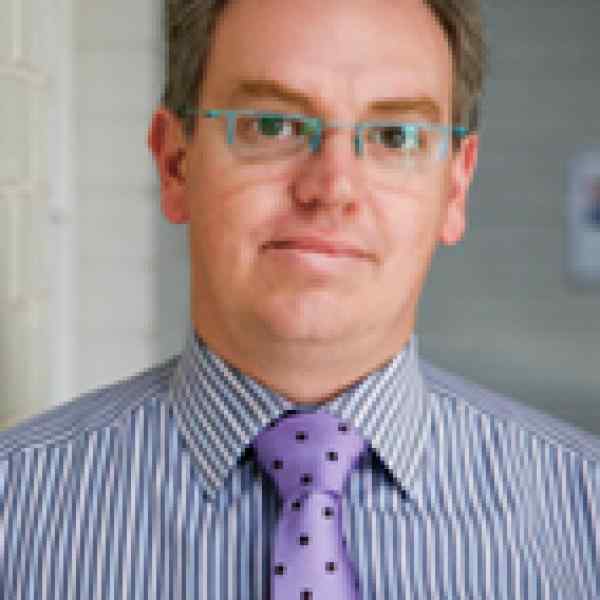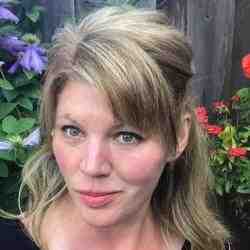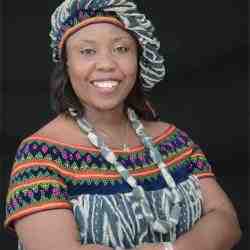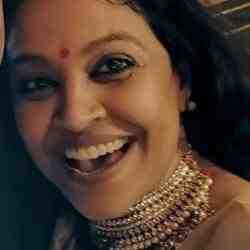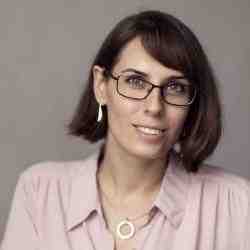Introduction
William Bird is transforming the way children and children’s issues are portrayed in the media through media monitoring efforts involving both journalists and children. He trains journalists on ‘child friendly’ journalism and enables children to become ‘media watchdogs’ to monitor press coverage of children, paying particular attention to children’s rights of privacy and dignity. William is comprehensively ensuring a rights-respecting and balanced reportage of children in the media.
The New Idea
William believes the media has a significant role to play in ensuring the realization and protection of children’s rights. Since 2003, he has been systematically monitoring the coverage of children in print and electronic media. He is equipping media professionals with the necessary tools to ensure the well-informed reportage of children and children’s issues. In addition, for the first time in Southern Africa, he is teaching children how to monitor media and providing mechanisms to constructively engage children and media professionals to transform field of journalism to be more child rights focused. William is also engaged in advocacy work in shaping government legislation and changing practices of major news outlets in South Africa.
Through his strategy Empowering Children and the Media (ECM), William engages journalists and equips them to become more responsible in their reporting of children and youth issues. Through workshops designed for media professionals, forums with children, and academic coursework, he is training a new breed of child-friendly journalists, and is sensitizing editors and journalists to issues children face from the perspective of the child. Using a rights based approach, ECM facilitates workshops and substantive interaction between media professionals and children.
William’s efforts to involve children as ‘media watchdogs’ and train young people to become critical contributors to media outlets are unique interventions in the field of journalism. His child-focused programming conducts ongoing media monitoring of children by children, and builds children’s critical media literacy skills through workshops and media monitoring. He is proactively and comprehensively changing media culture in Southern Africa and strengthening child rights.
William also has an advocacy component to his new idea whereby he conducts research projects on children and media, and lobbies broadcast houses and the government to become more ‘child-friendly’ in their reporting and legislation, respectively. He designed and disseminated an influential handbook with practical tips for journalists and newsrooms for reporting on children. He has also created an online media advocacy tool that highlights the best and worst examples of media reporting on children in media. William, in conjunction with other media monitoring groups and human rights organizations, has also advocated for legislation change to protect the rights of children within the Divorce Act in South Africa’s highest court, the Constitutional Court. He is successfully changing the way the media reports on sensitive family matters as well as striving to ensure the protection of a child’s right to privacy in divorce cases. William is advancing children’s rights and simultaneously transforming the role and content of the media in South Africa.
The Problem
In the South African media, children are often misrepresented or marginalized, and children are depicted in ways that violate their human rights. Sensationalist journalists often show pictures of children in compromising or graphic circumstances which violates their right to dignity and jeopardizes their wellbeing. The images and identities of minors are also often disclosed in divorce and domestic abuse cases, and their rights of privacy and dignity are violated.
William is currently the Director of the Media Monitoring Africa (MMA) (formerly Media Monitoring Project (MMP), a media watchdog citizen organization (CO), and has conducted in-depth research on the portrayal of children in the media. MMA has found that children feature in only 6 percent of news stories in South Africa, and when children do feature in the news they tend to be shown in very limited roles with one in four represented as a victim. Children are referenced in the media, but seldom given the opportunity to have issues from their perspective featured. An analysis of the types of stories featured in the media suggests that newspaper and television reporting tends to support negative gender stereotypes about girls as passive victims, appearing mostly in sexual abuse stories, while boys are shown as criminals and aggressive.
Children in South Africa account for roughly 39 percent of the population and marginal reporting on stories involving them and negative portrayal of them encourage an impression that children are largely victims of abuse, war, disease, and poverty. Children most exploited in reporting tend to be black, poor, and victims of horrific experience in townships or rural areas. Such limited and often racist reporting does little to oppose attitudes that place children as mere objects with little to contribute to society, and also fuel negative ethnic stereotypes.
The current problems of poor representation of children in the media, the violation of child rights, and the perpetuation of disempowering stereotypes, are largely attributable to media houses which favor sensationalist reporting over responsible journalism, poor reporting by journalists who have not been sensitized to child’s rights, and the lack of engagement between journalists and children.
The Strategy
William’s project is addressing the above mentioned problems by training journalists and equipping them with the tools to make their reporting ‘child-friendly’ and respectful of child rights. He is engaging children in the monitoring of the media and creating forums for dialogue between journalists and children. He is also involved in advocacy work to change media culture and correct the way children are portrayed in news outlets.
William works with journalists to fundamentally change the way they report on children and children’s issues. Through a series of either 3-day workshop courses, William provides journalists with specialized tools and skills to enable ethical, human rights focused reporting of children. His workshops, comprised of about fifteen journalists each, and encourage journalists to challenge stereotypes, and to interview and report with integrity and in the best interests of the child in their stories. The first two days of the course consist of learning child rights legislation and understanding responsible child-focused reporting guidelines, as well as awareness building on the types of reporting being conducted on children. There is a special skill set required for the interviewing of children and William has found that many journalists have never interviewed children despite having written about children and their issues for years. William is training journalists on interview and reporting techniques, and equipping these media professionals to be specialists in matters pertaining to children. Journalists meet with children at a local media house on the third day of the workshop for ‘feedback forums’. These forums, mediated by ECM staff, are platforms for constructive dialogue between children and journalists, and probing questions of media portrayal of children, children’s issues and opinions, and stereotypes are discussed. These workshops are a mechanism by which journalists can shape the content of future coverage of children’s issues. They increase journalists’ own consciousness level and knowledge base of children’s rights and issues. To date, he has held more than 10 journalists’ workshops and sixty journalists have acquired specialist children reporting skills in three provinces in South Africa.
In addition to this multi-faceted approach to working with journalists, William convenes workshops for children and organizes discussion forums between children and journalists. ECM’s children’s workshops consist of twenty children each and are tailored to the children’s age, ability of analysis, and reading skills. Each intervention consists of a minimum of three weekly, one-day workshops. The first workshop focuses on human rights and children’s rights to help the children learn about their rights. The second workshop builds upon this foundation, and the media and the role media plays in society are introduced. Children monitor select South African national newspapers, radio shows, television news broadcasts, and online news articles. This workshop probes how the media generally portrays children, and teaches children how media houses structure and formulate the news. The third workshop introduces media monitoring to the children. Children are given a media monitoring workbook that William has designed which teaches them how to monitor the media. They then visit a media house and meet with journalists to gain exposure to the media environment and have mediated discussions with journalists. Children monitor the media for an average of three to four months and assess how children are being portrayed and give feedback to journalists in structured ‘feedback forums’. During this workshop, ECM staff meet with students on a weekly basis to track their progress, answer questions, and set up ‘feedback forums’ with journalists. Workshops with media professionals give children valuable life skills develops their critical thinking and also enables them to have their voices heard by some of the key media in the country. By interacting with the journalists the children help to challenge common stereotypes and ensure their voices are heard.
William’s approach is inclusive as he not only involves well performing schoolchildren, but also those who are struggling with literacy and those who come from disadvantaged backgrounds. For those children and journalists in rural areas and/or who have no access to television, he provides radios and newspapers so they can equally take part in his programming. His reach is extending to the families of the children he is involving as his feedback indicates parents are increasingly reading the newspaper and critically engaging with their children on current events. Teachers have reported that children attending ECM’s workshops are displaying reading, writing, and critical analysis skills well above those of their peers.
Media monitoring is a critical ingredient in helping to assess not only how the media portrays children, but also whether media advocacy and awareness strategies being implemented are having a significant impact. In addition to involving children in media monitoring, ECM contracts university educated adults to take part in a monitoring program designed specifically to assess children’s issues in the media on an ongoing basis. He holds training workshops of 20 adults per workshop and trains them on media monitoring and child rights issues. The findings of these adult monitors are incorporated into his children and journalist workshops as well as academic research ECM produces.
Advocacy is the third component to ECM’s strategy to change media culture in South Africa. William targets media houses, national broadcasting institutions, the South African government, and institutions of higher learning, in an attempt to ensure the rights of children are upheld in the media. In 2002, in conjunction with UNICEF, William co-authored a handbook for reporters to aid them in reporting on children. The handbook contained the latest legislation, ideas for non-traditional story angles, tips on how to interview children, and guidelines on how to report stories about (and with) children ethically and sensitively. The handbook was reviewed and endorsed by the South African National Editors Forum (SANEF). Following the handbook William developed a set of guidelines for reporting on children and these became the first set of child specific guidelines recommended by SANEF to all its members.
William has successfully lobbied the South African Broadcasting Corporation and the Independent regulator, ICASA, to increase coverage and attention to children’s issues and increase children’s programming as part of their national broadcasts. Through ECM he has made recommendations to parliament on improving legislation with regards to broadcasting and has also acted as Amicus Curae in a case before South Africa’s Constitutional Court on privacy rights of children in divorce cases. The input was successful and children’s rights to dignity and privacy now have even greater protection under South African law.
ECM’s public media awareness work also contributes to the shift in the media’s portrayal of children. Their website aims to raise awareness and improve the representation of child abuse in the South African media. Their online site provides clear supported examples of best and poor practice stories as well as a range of practical suggestions for improved representation, in addition it serves as an ongoing monitoring and evaluation tool to highlight trends in media coverage. From feedback from children and journalists, it is evident that the impact his programming is having on these two groups and the media at large is significant, and he intends to secure funding for a five year comparison study to quantitatively assess the shift in media culture in 2009.
William also works with academic institutions to shape theory and practice in the field of journalism. ECM has developed an academic course on child-focused reporting in partnership with the University of the Witwatersrand School of Journalism in Johannesburg. The honors level university accredited course is the first of its kind in South Africa and has been offered for three terms now with increasing enrollment interest. Upon completion of the course, journalists are identified as experts in ‘child friendly’ journalism. In addition to these courses, ECM produces academic pieces of research on various elements relating to children and the media.
William has designed and implemented ECM’s activities on a part-time basis while serving as the Director of the Media Monitoring Africa t, South Africa’s premier media watchdog organization. He has served as Director of MMA for the past nine years, but due to his passion for child’s rights issues, he plans to devote his full attention to ECM and step down from his directorship of MMA once he has groomed a successor. ECM currently has three full-time staff members in addition to experts and consultants brought in to run specialized thematic workshops. This year he has approached ten to fifteen donors, such as Open Society Institute and other foundations interested in human rights based approaches to media and child welfare in the hopes of securing further funding to expand his project to all nine provinces in South Africa.
William is a prominent figure in the field of media monitoring which lends to the ease in which he has been able to expand internationally. He plays a significant role in the largest civil society media monitoring exercise in the world, the Global Media Monitoring Project. Seventy six countries monitor gender representation in the media in the Global Media Monitoring Project and William is responsible for producing the data analysis for the African countries that participate. William has led over eighty media monitoring projects in South Africa and internationally. This year ECM is running workshops in South Africa’s Gauteng Province, and has begun piloting workshops in Zambia and Malawi. William held a two-day workshop with twenty-five Zambian journalists and editors in January 2008, and is working with PLAN Malawi with an initial goal of holding five workshops in Malawi within the next few months. He has identified local partners in both Zambia and Malawi to train their staff on his methodology and have them run media monitoring programming in their own countries.
The Person
William’s experiences growing up as a white South African during the 1970s and 1980s afforded him certain luxuries and benefits in his highly racialized society. William hails from a family of activists who opposed the apartheid regime, and instilled in him a belief that he must use his ‘better resourced’ position in life to uplift others. His parents were anti-apartheid activists and involved in local politics in Johannesburg, and instilled an ethos to “do things on the basis of principle’ even at a cost to oneself personally and/or financially.
Growing up in a politicized environment, William was determined to contribute in some way to a better South Africa. He dodged conscription in to the military by enrolling at Wits University and was inspired by the political activism that he was exposed to on campus. He studied drama, film, and media theory, and became very interested in working on race, gender, and equality issues. In university he began interning and taking on small media monitoring projects for MMA. He was sensitive to the issues of dignity and responsible reporting as he covered the events of the Boipatong Massacre and the Truth and Reconciliation Commission testimonies. His first piece of work for MMA was in 1997 on news diversity. He states that 1997 “was an optimistic time—we had a new country, new media. In my media monitoring in these early days, I was very conscious of the way that the dignity and privacy of black people was routinely violated—people in townships reduced to statistics. Then over time, the story of child rape in South Africa started to develop. I used to look at the stories in newspapers, and photos of the children, and think ‘if that was my child, I wouldn’t want this story to run this way.’ But these children didn’t have the means or resources to answer the stories written about them.” The violation of dignity and human rights was a cornerstone of the Apartheid system, and William identified his contribution to a post apartheid society as helping to restore dignity and rights of young people. He became determined to give the voiceless—especially children—a voice in society. In 2003, he created his program within the Media Monitoring Africa, Empowering Children and the Media, in an effort to follow his passions to fight for the rights of children.
